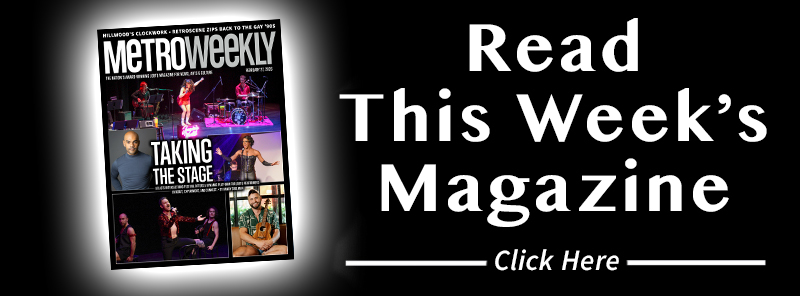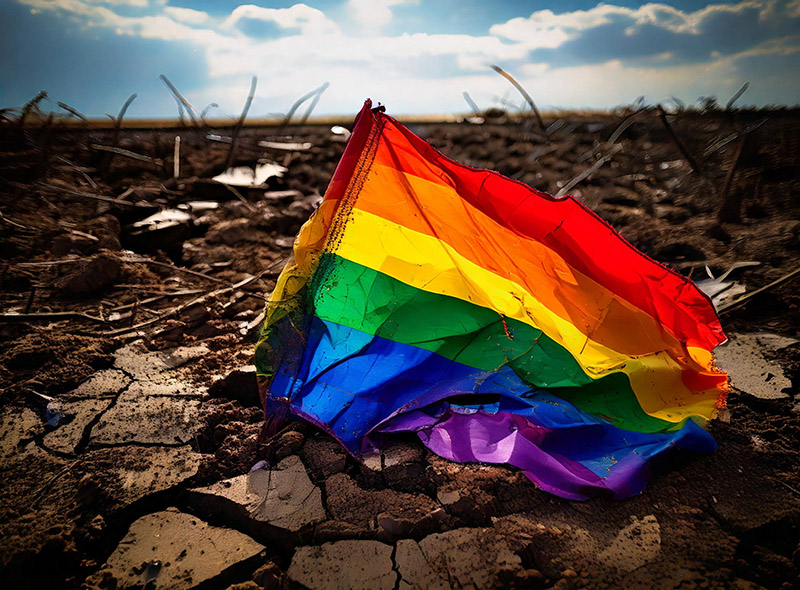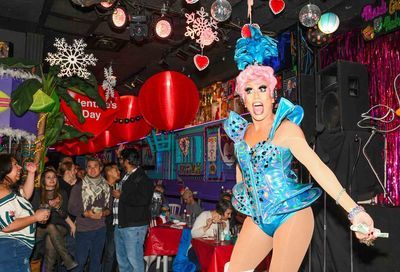Park Service Erased “Bisexual” from Stonewall Monument, Then Reversed Course
Critics say the erasure -- later reversed -- shows the Trump administration won’t stop at just targeting transgender identity.

After removing all references to transgender people from the Stonewall National Monument website earlier this year, the National Park Service has now scrubbed mentions of bisexual people as well.
As first reported by transgender journalist Erin Reed on her Erin in the Morning Substack, the change occurred on July 10, when the homepage was updated to read, “Before the 1960s, almost everything about living authentically as a gay or lesbian person was illegal.”
Subsequent pages, including the site’s “History and Culture” section, were also altered to remove broader LGBTQ references. One now reads: “Stonewall was a milestone for gay and lesbian civil rights,” whereas it previously noted that living “openly as a member of the Stonewall comunity [sic] was a violation of law.”
The Stonewall National Monument website — administered by the National Park Service, an agency within the U.S. Department of the Interior — has previously been targeted for the removal of terms the Trump administration characterizes as “woke,” particularly those recognizing gender-nonconformity or transgender identity.
In February, the NPS removed all mentions of transgender individuals from the monument’s website to comply with President Donald Trump’s executive order prohibiting any federal recognition of transgender identity.
In June, the NPS banned the display of the transgender Pride flag and the Progress Pride flag — which incorporates the trans flag’s colors — as part of any decorations at the monument or nearby Christopher Park during Pride Month. In response, visitors began mounting unauthorized Pride flags at the site in protest.
Even now, the monument’s website credits activist Sylvia Rivera — a transgender woman and prominent figure in the early LGBTQ visibility movement — with fighting for “gay and rights,” a nonsensical phrase where the word “transgender” appears to have been deleted, likely by an automated web-scrubbing tool.
As Reed noted, transgender and bisexual people played key roles in the early LGBTQ rights movement. For example, Brenda Howard — a bisexual rights activist often called the “mother of Pride” — helped organize the rally that evolved into the Christopher Street Liberation Day March, the predecessor to New York’s modern-day Pride parade.
“Bisexual, transgender, and queer people were at the forefront of the Stonewall movement,” Reed wrote. “Though the language was still evolving, many of the patrons defied conventional categories of gender and sexuality, refusing to be neatly classified. Erasing them from Stonewall is not only historically false — it is a deliberate act of political revisionism.
“The recent removal of ‘bisexual’ from official Pride histories is a warning: attacks on transgender people will never stop with us,” Reed concluded. “They are part of a broader effort to narrow the scope of who is allowed to belong, to be seen, and even to be remembered.”
Some members of the LGBTQ community blasted the move on social media, with transgender activists noting they had long warned that efforts to erase LGBTQ identity would escalate. Some also criticized bisexual, gay, and lesbian commenters who tried to justify attacks on LGB visibility by blaming transgender people for alienating Republicans and social conservatives.
“We always knew once trans people were separated from the LGBTQ+ the same people would start trying to tell bisexuals they didn’t belong,” wrote one commenter. “They keep dropping hints about going after marriage equality. And we are seeing exactly what we’ve been warning about happening in real time.”
A Facebook post, later screenshotted and shared by a user on X, suggested there may be more sinister motives behind the erasure of bisexuality from public view.
“The erasure of bisexual identity is necessary in presenting homosexuality as an occasional action people ‘do,’ rather than something inherent to them or something they can ‘be,'” the Facebook post read. “Then, when someone in a straight relationship occasionally has gay sex, they can say, ‘See? Homosexuals don’t exist — it’s just sexual deviancy,’ and no one can respond, ‘That person is just bi.’ It’s interesting to see how they’re reverse-engineering civil rights.”
Following the outcry, the National Park Service quietly restored references to bisexuality on the Stonewall Monument website — at least for now.
Support Metro Weekly’s Journalism
These are challenging times for news organizations. And yet it’s crucial we stay active and provide vital resources and information to both our local readers and the world. So won’t you please take a moment and consider supporting Metro Weekly with a membership? For as little as $5 a month, you can help ensure Metro Weekly magazine and MetroWeekly.com remain free, viable resources as we provide the best, most diverse, culturally-resonant LGBTQ coverage in both the D.C. region and around the world. Memberships come with exclusive perks and discounts, your own personal digital delivery of each week’s magazine (and an archive), access to our Member's Lounge when it launches this fall, and exclusive members-only items like Metro Weekly Membership Mugs and Tote Bags! Check out all our membership levels here and please join us today!


























You must be logged in to post a comment.